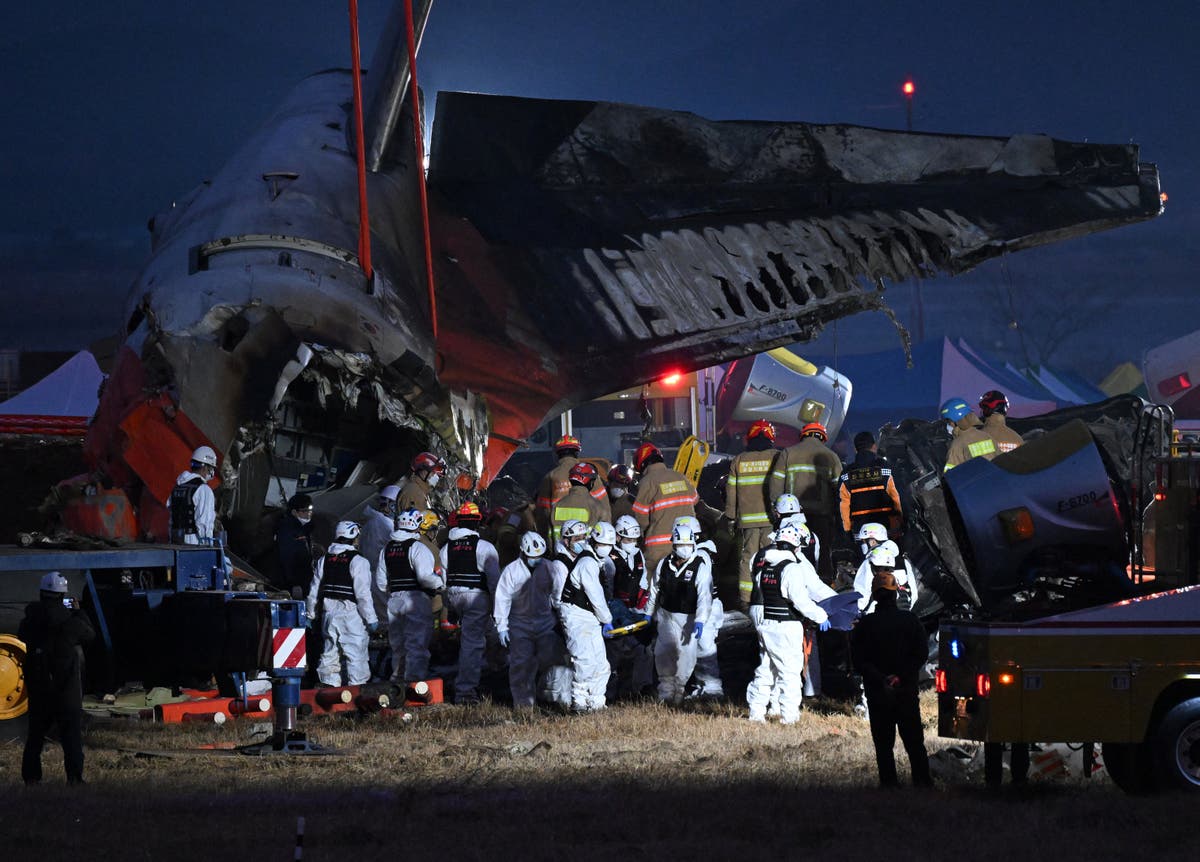A devastating plane crash in South Korea has resulted in 179 fatalities, prompting a thorough investigation into the cause, with a potential bird strike being a key focus. The incident, the deadliest in the country's aviation history, occurred at Maun International Airport, as a Jeju Air flight attempted an emergency landing.
The flight, originating from Bangkok, was carrying 181 passengers and crew, many of whom were holiday travelers. Tragically, all but two crew members perished when the aircraft skidded across the runway, struck a wall, and ignited. Among the victims were five children, including a three-year-old.
Authorities are now examining whether a bird strike may have compromised the plane's undercarriage, contributing to the catastrophic failure. Initial reports suggest air traffic controllers warned the pilots of a potential collision with birds just minutes before the crash. A passenger's message mentioning a bird stuck in the wing further supports this theory.
While a bird strike is under consideration, experts caution it's unlikely to be the sole cause of the accident. Aviation safety professionals highlight that while bird strikes are common, they rarely cause complete loss of an aircraft.
Further complicating the situation, investigators discovered the cockpit voice recorder was damaged and could take up to a month to decode. However, the flight data recorder, considered crucial for understanding the sequence of events, was successfully recovered, and analysis is underway.
Questions are also being raised regarding the airport's emergency response and the presence of a brick wall at the end of the runway. Officials, however, maintain that the airport adheres to standard safety protocols. The South Korean government has initiated a civil investigation, with the U.S. National Transportation Safety Board also involved due to the aircraft's U.S. design and manufacturing.







